Aboriginal woman raped to death but white suspects yet to face trial five years later
Death of Lynette Daley throws Australia's lingering racism into focus
Your support helps us to tell the story
From reproductive rights to climate change to Big Tech, The Independent is on the ground when the story is developing. Whether it's investigating the financials of Elon Musk's pro-Trump PAC or producing our latest documentary, 'The A Word', which shines a light on the American women fighting for reproductive rights, we know how important it is to parse out the facts from the messaging.
At such a critical moment in US history, we need reporters on the ground. Your donation allows us to keep sending journalists to speak to both sides of the story.
The Independent is trusted by Americans across the entire political spectrum. And unlike many other quality news outlets, we choose not to lock Americans out of our reporting and analysis with paywalls. We believe quality journalism should be available to everyone, paid for by those who can afford it.
Your support makes all the difference.The life was long drained from Lynette Daley by the time the cops rolled up to the lonely beach where her naked body lay.
Her skin was cold, her lips were blue, and her blood was everywhere. It was between her legs and in a large clot by her feet. It was inside the four-wheel drive parked nearby and on the remains of the recently burned mattress partly hidden in the sand. And it was on the jeans worn by one of the two men who were with Lynette when she died.
It had been, the pair said, a wild night.
A coroner would later find Lynette bled to death from a sex act she was subjected to while so deeply intoxicated, she could not have consented. A forensic pathologist dubbed her injuries more severe than those which occur in even precipitous childbirth.
Yet for five years, despite the urgings of the coroner and police, prosecutors refused to try the men charged with her death. It was not until June, amid enormous pressure from an outraged public, that they at last agreed to bring the case to court.
Prosecutors have never publicly explained their reluctance to take the case, but Lynette's parents believe the reason is both painful and obvious: Their daughter was Aboriginal. The two men accused in her death are white.
"If it was two Indigenous people who'd done it to a white girl," her stepfather Gordon Davis says bluntly, "they'd be in jail."
Whether racial prejudice played a role in Lynette's case depends on who you ask. Some suggest there may have been a problem with the evidence that gave prosecutors pause. Others say that, as a poor mother of seven battling alcoholism, the 33-year-old may not have been viewed by prosecutors as an "ideal" victim.
Whatever the truth, the horror of Lynette's death has shaken a nation long uncomfortable talking about race, especially when it comes to the suffering of Australia's original inhabitants. The denial runs so deep that anthropologist WEH Stanner once dubbed it "the Great Australian Silence."
When the British claimed Australia in the 1700s, they did so by declaring it "terra nullius" — owned by no one — ignoring the fact that Aboriginal people had lived there for at least 50,000 years. Forced off the land by colonists and exposed to new diseases, the Indigenous population shrank drastically.
Today, Aboriginal people make up just 3 per cent of the population of 24 million. And by almost any measure — from health to wealth, employment to imprisonment — they lag far behind everyone else.
"The shame of this country is the treatment of Aboriginal people," says former New South Wales state lawmaker Jan Barham. "Lynette's case — it's an example of that cultural ignorance or denial that we don't value equally the lives and the treatment of an Aboriginal person."
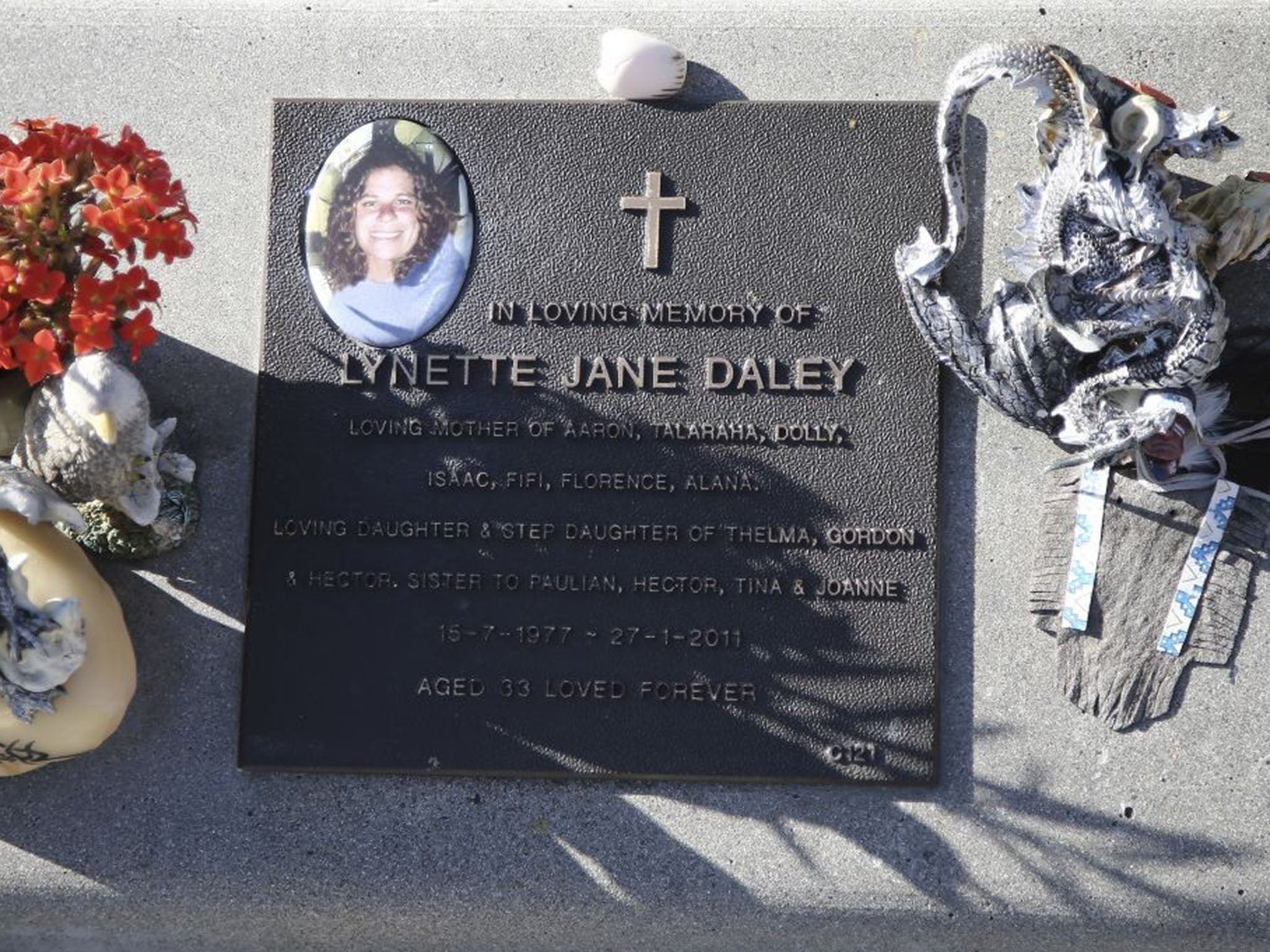
Lynette and her twin brother were born in the riverside town of Maclean, the middle of five children. Their mother, Thelma, eventually split with their father and married Gordon.
He adored Lynette, a cheeky tomboy who preferred the nickname Norma and loved animals, particularly eagles for the freedom they exuded. She adopted the eagle as her totem, or spiritual emblem.
When it came to boys, she was fiercely competitive; she threw stones farther than them, climbed trees higher. Thelma daydreamed her athletic daughter might one day be an Olympian.
Her family sometimes called her Knocky, because nothing could knock her down. One day while picking lemons, two dogs attacked her, tearing into her leg and prompting a trip to the hospital. Undaunted, she returned to the lemon tree the next day.
Gordon smiles at the memory now, of the days before it all went wrong, before his tough little girl grew into a tough-to-handle teen who fell in with a bad crowd. Before she picked up her first drink, picked up the drugs, descended into a grim spiral of alcoholism and abuse they were powerless to stop.
By 16, she was pregnant with her first child. Several of her children were fathered by men her family says controlled her, beat her, left her body covered in a constant constellation of bruises.
She went to the police a few times, her parents say, but they rarely intervened. She tried to fight back, but she was outmatched.
"They broke her spirit in the end," Gordon says. "She never had a chance."
Gordon watches with weary eyes as his granddaughter, Alana, dances around their living room.
He and Thelma are always watching her, watching her sisters, because they are terrified of what will happen if they don't. They know the girls are also vulnerable to abuse.
"I know what's on the cards, what happened to Lynette," he says.
There is no shortage of distressing data. Indigenous women and girls are about 35 times more likely to be hospitalized due to family violence than their counterparts. Indigenous women are two to four times more likely to be sexually assaulted. Indigenous mothers are nearly 18 times more likely to be victims of homicide.
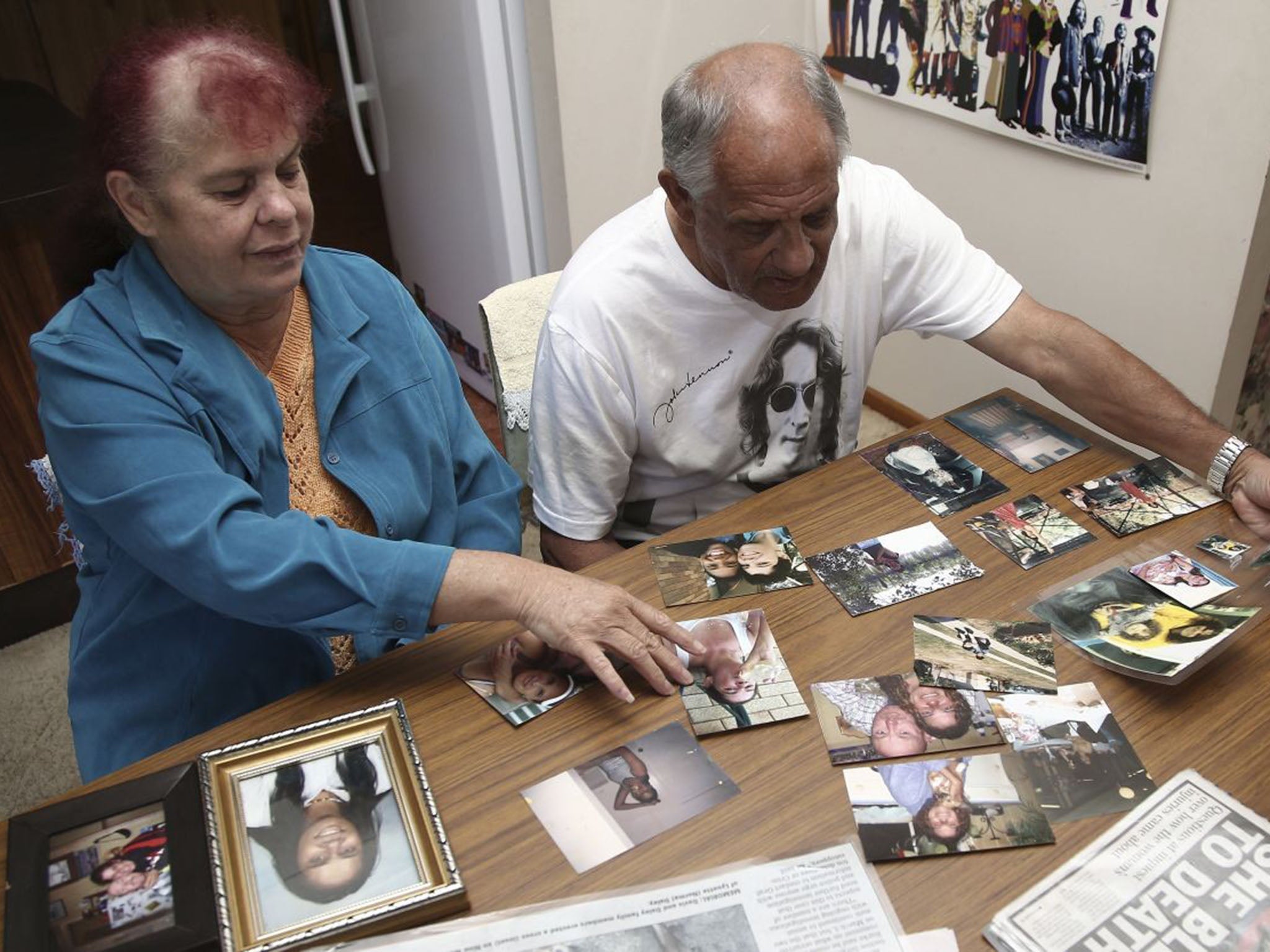
Yet few cases of violence are ever reported, and far fewer make it to court. Part of that is due to a deep distrust of authorities that dates back to European settlement.
The distrust grew worse during Australia's notorious "Stolen Generations" era, which only ended in the 1970s. For decades, the government forcibly removed Aboriginal children of mixed race from their families, arguing that integrating them into white society was more humane. Many were relegated to institutions where they were abused and neglected.
Countless studies suggest Aboriginal Australians are right to remain wary of the justice system. They make up more than a quarter of the prison population, and rates are rising. Legal experts also say cases involving Indigenous victims often are dropped before trial.
Consider the infamous disappearance of three Aboriginal children from the New South Wales town of Bowraville between 1990 and 1991. Two were found dead; the third remains missing. The prime suspect, a white man, was tried for two killings and acquitted of both.
The families said police initially suggested the youngsters had just "gone walkabout" — a term referring to the journey that Aboriginal adolescents traditionally made into the wilderness. In August, a quarter-century after the children were killed, the state police commissioner finally apologised to the families for how the case was handled.
It is perhaps unsurprising, then, that few Indigenous women turn to authorities for help.
"These women should be protected ... and they should have the support of the legal system. It's quite the opposite," says lawyer Thalia Anthony, an expert in Aboriginal legal issues with the University of Technology Sydney. "With Lynette, she's someone who the legal system can easily forget."
The courts did intervene when it came to Lynette's children, awarding custody to Thelma and Gordon after it became clear she could not care for them. She loved them and visited often, her parents say, but knew they were safer with their grandparents.
No one knows exactly when Adrian Attwater and Paul Maris entered Lynette's orbit, though given the tight community, they likely crossed paths over the years. Gordon remembers seeing the men at the pub where Lynette used to drink. Attwater told police he and Lynette were dating, though her family doesn't believe it.
By 33, Lynette was homeless. One January day in 2011, she showed up at Gordon and Thelma's house, sick from the alcohol, sick of it all. She spent a couple of days there, drying out. Gordon thought maybe she'd finally hit bottom.
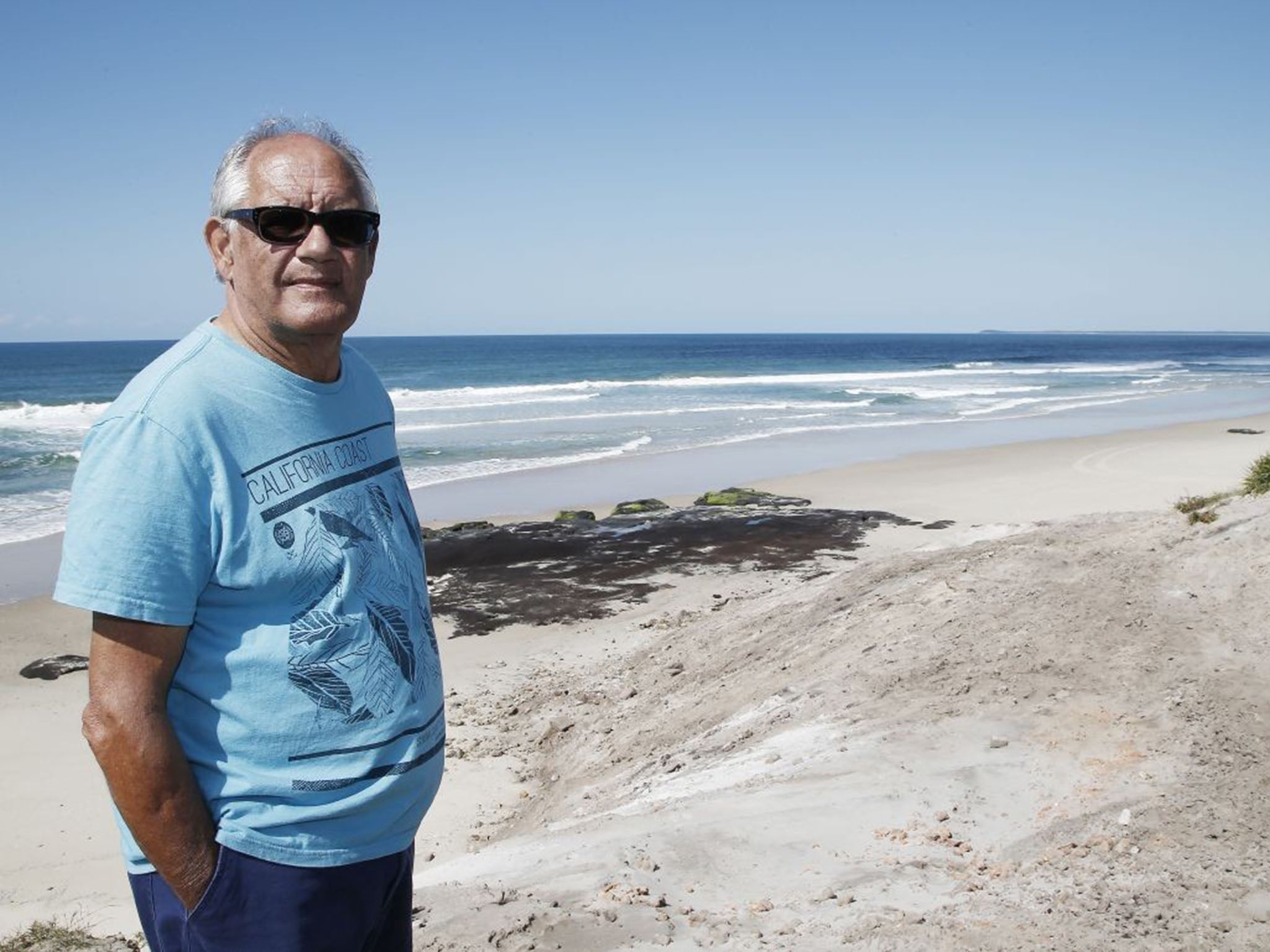
And then, he says, either Maris or Attwater called her.
Lynette told her father they were going fishing. She left some money for her children, then said goodbye.
"I love you, mum," she told Thelma, and walked out the door.
The only way to reach Ten Mile Beach by car is via a dusty road through the forest or in a four-wheel drive along the beach from the village of Iluka, which lies to the south.
It is the definition of desolate. The wind has carved the shrub-shrouded dunes into steep cliffs that tower above the golden sands. Beyond the bluffs is a national park, where a dense canopy of trees stretches inland for miles.
The trio arrived here for Australia Day, a national holiday that had drawn a handful of campers to the coast. The state coroner compiled a detailed summary of what happened next, based on the statements of Attwater and Maris and testimony from witnesses, police, paramedics and others:
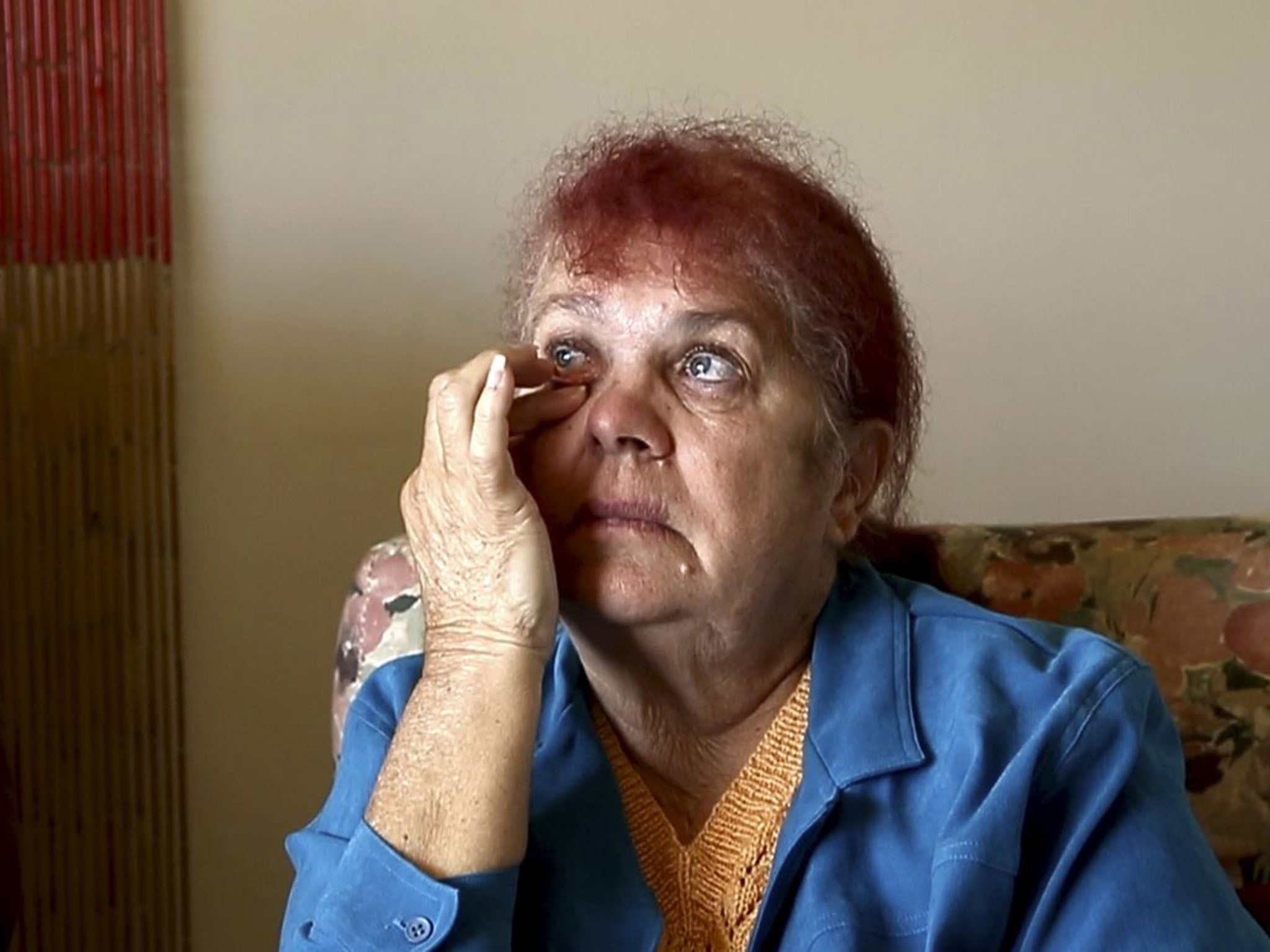
They had all been drinking when they parked in the dunes. Lynette was particularly far gone — an autopsy later showed her blood alcohol level was between 0.30 and 0.35 percent, high enough to leave her severely incapacitated.
At some point, Attwater told police, he and Lynette began to engage in what he described as a consensual sex act in which he inserted his fist inside her. Asked to demonstrate what Attwater did next, Maris — who performed another sex act on her simultaneously — moved his fist back and forth in a vigorous punching motion. Later, Attwater changed his account: he had used only four fingers, he said, and moved them gently.
Whatever the specifics, the act proved deadly.
The men told police they stopped when they saw blood. Their stories diverge on what happened next. But just before dawn, Maris set fire to the blood-soaked mattress from the back of the truck, along with Lynette's blood-stained bra.
At 6 a.m., Maris called paramedics and said they had all been drinking and Lynette had stopped breathing. It took the ambulance about an hour to reach the remote site. By then, Lynette was dead.
The men told paramedics that Attwater had had "wild sex" with Lynette. Attwater said Lynette later collapsed in his arms as they walked toward the ocean.When the police arrived, they saw that Maris' truck was parked directly above a pile of charred material. When questioned, Maris said he had burned the mattress because it smelled bad, and Lynette's bra because he didn't think she would want it.
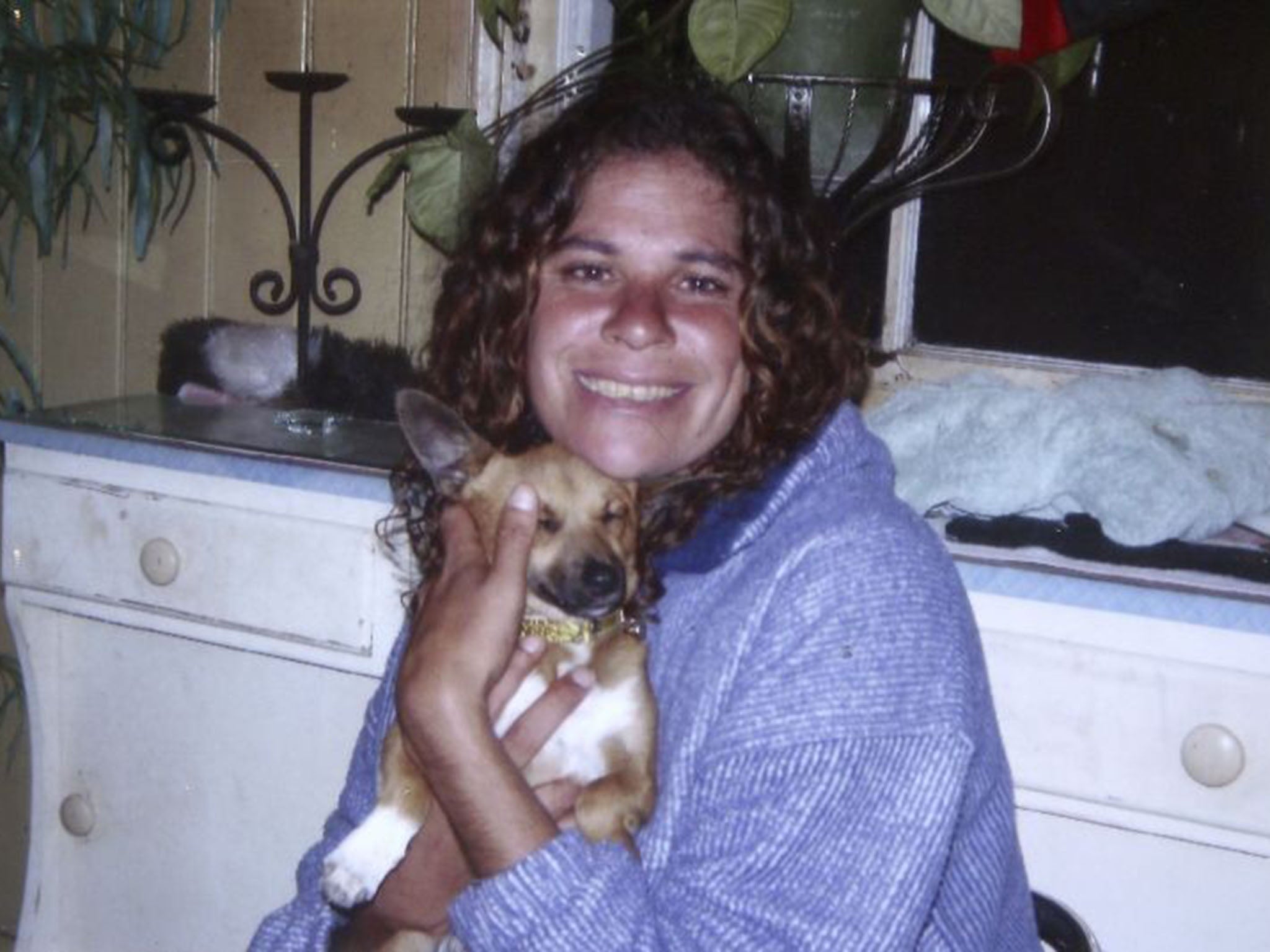
Around 50 kilometers (30 miles) to the south, Thelma and Gordon were driving home from a day of shopping with one of Lynette's daughters, Talaraha, when their phone rang. It was Lynette's sister, Pauline. Lynette, she said, was dead.
Thelma started screaming. Gordon went numb. He didn't want to believe the girl he had spent years trying to save was gone.
A few months later, police charged Attwater with manslaughter, and Maris with accessory after the fact.
Gordon and Thelma were relieved. This was their chance at justice, they thought, the beginning of their agony's end. It wasn't.
Months passed with no word on whether the men would be prosecuted. Gordon and Thelma grew anxious. Then one day in 2012, attorneys from the state prosecutor's office invited them to a meeting. Gordon brought along his friend Greg Wheadon, a former state police officer, for support.
What the prosecutors said left them stunned: They were dropping the charges.
The prosecutors said they couldn't prove the men intended to hurt Lynette, Wheadon says. The explanation was baffling: A charge of manslaughter does not require proof of intent.
When the family's pleas proved fruitless, state coroner Michael Barnes agreed in 2014 to hold an inquest, a court-like proceeding convened after unusual deaths.
His findings were unequivocal: Lynette died of blood loss caused by blunt force genital tract trauma — injuries undoubtedly inflicted, Barnes wrote, by Attwater.
The coroner concluded that Lynette had been so intoxicated she couldn't have meaningfully consented to sex, that she would have been in severe pain, and that Maris and Attwater conspired to burn the mattress and bra out of fear they could be used as evidence.
"The court expresses its contempt and disgust," Barnes wrote, "for the callous disregard for her welfare shown by her supposed friends."
Barnes determined that there was a reasonable prospect of securing a conviction. So he referred the case back to the prosecutors.

Shortly before Christmas last year, the lead detective in the case, Grahame Burke, came by the Daleys' house. They could tell from the expression on his face that something was wrong.
At the dining room table, he confirmed their fears: The head prosecutor was declining to press charges. Again.
Thelma and Gordon could not understand it. The prosecutor said there wasn't enough evidence. But the coroner had made everything sound so clear-cut. Didn't their daughter's life mean anything?
"Indigenous people have got no chance," Gordon says today. "Not with the justice system here."
Wheadon has reached the same conclusion.
"From what I could see — my 20 years police service — it was the worst case of discrimination I've ever seen in my life," he says.
"She deserved more than that."
The Daleys were running out of hope. And then the Australian media jumped on the case.
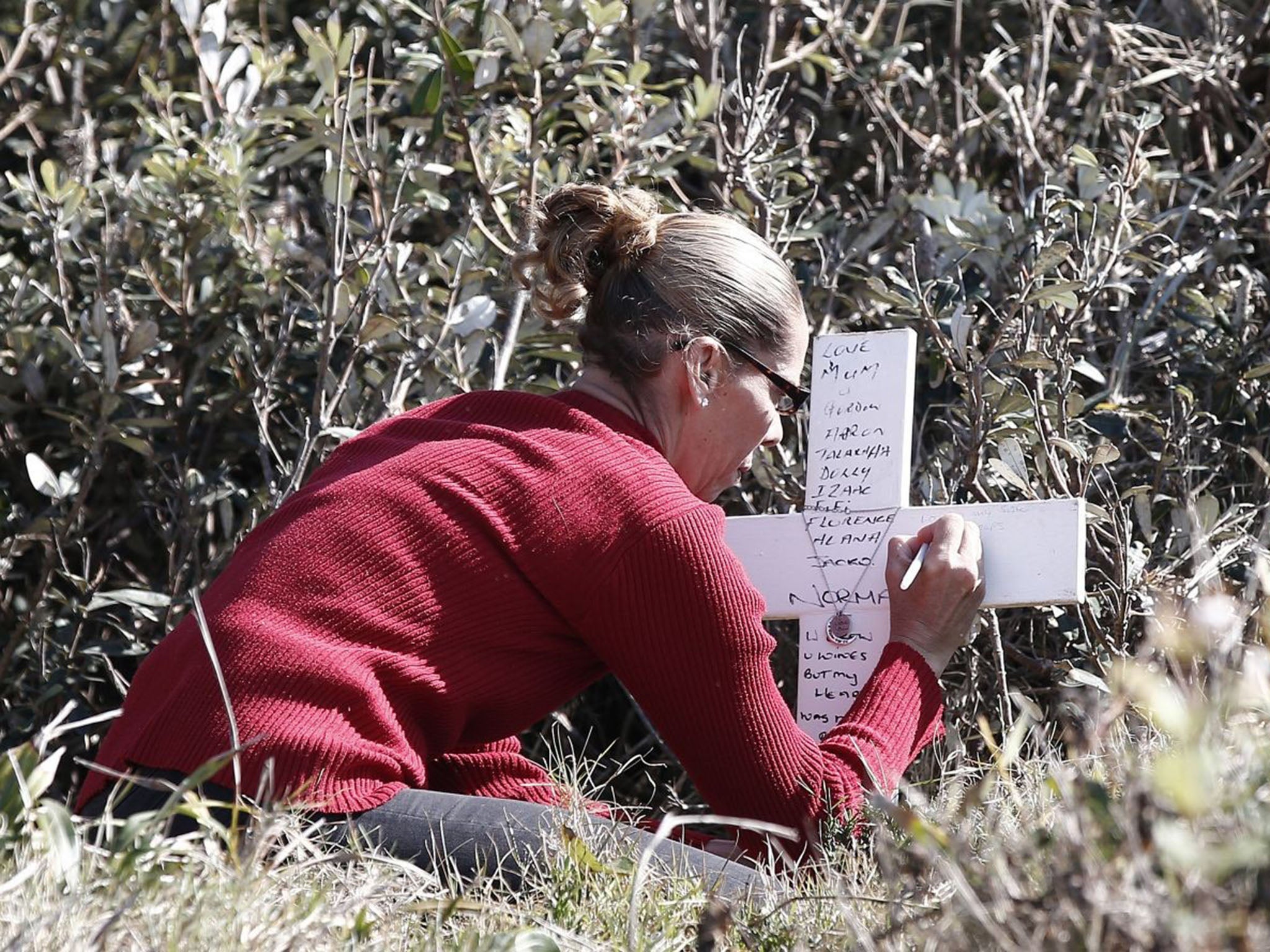
Headlines blaring "VILE" and "No Justice for Tragic Norma" followed, a reference to Lynette's nickname. A #JusticeForNorma campaign launched on social media. An online petition demanding the head prosecutor justify his actions gathered tens of thousands of signatures. Protesters rallied outside the office of a local politician. In a Facebook comment liked more than 1,000 times, one woman summed up the mood of many: "Today I am appalled to be Australian."
There was particular anger among Aboriginal rights advocates, if little shock. Many saw what happened to Lynette both before and after her death as achingly familiar.
"It's unfortunately behavior that we've learned to live with and we shouldn't have to live with," says Rachael Cavanagh, who runs a Clarence Valley support group for Indigenous victims of domestic violence. "My great-grandmother was beaten to death by her partner and there was no trial, there was no charge, there was nothing — because she was an Aboriginal woman."
Skeptics dismissed the idea that bigotry was involved. Some blamed Lynette's death on alcohol and called for prohibition in Indigenous communities (alcohol is already banned in certain Aboriginal settlements — a divisive issue in itself.)
State prosecutors declined to comment. But Nicholas Cowdery, the former state Director of Public Prosecutions, rejects the argument that bias played a role. While he did not work on Lynette's case, he says the prosecutor's office has guidelines that ban consideration of a person's race when deciding whether to move forward with a prosecution. He also dismisses the suggestion that Lynette may have been seen as an "imperfect victim" who would fail to move a jury.
"A life is a life," he said by e-mail.
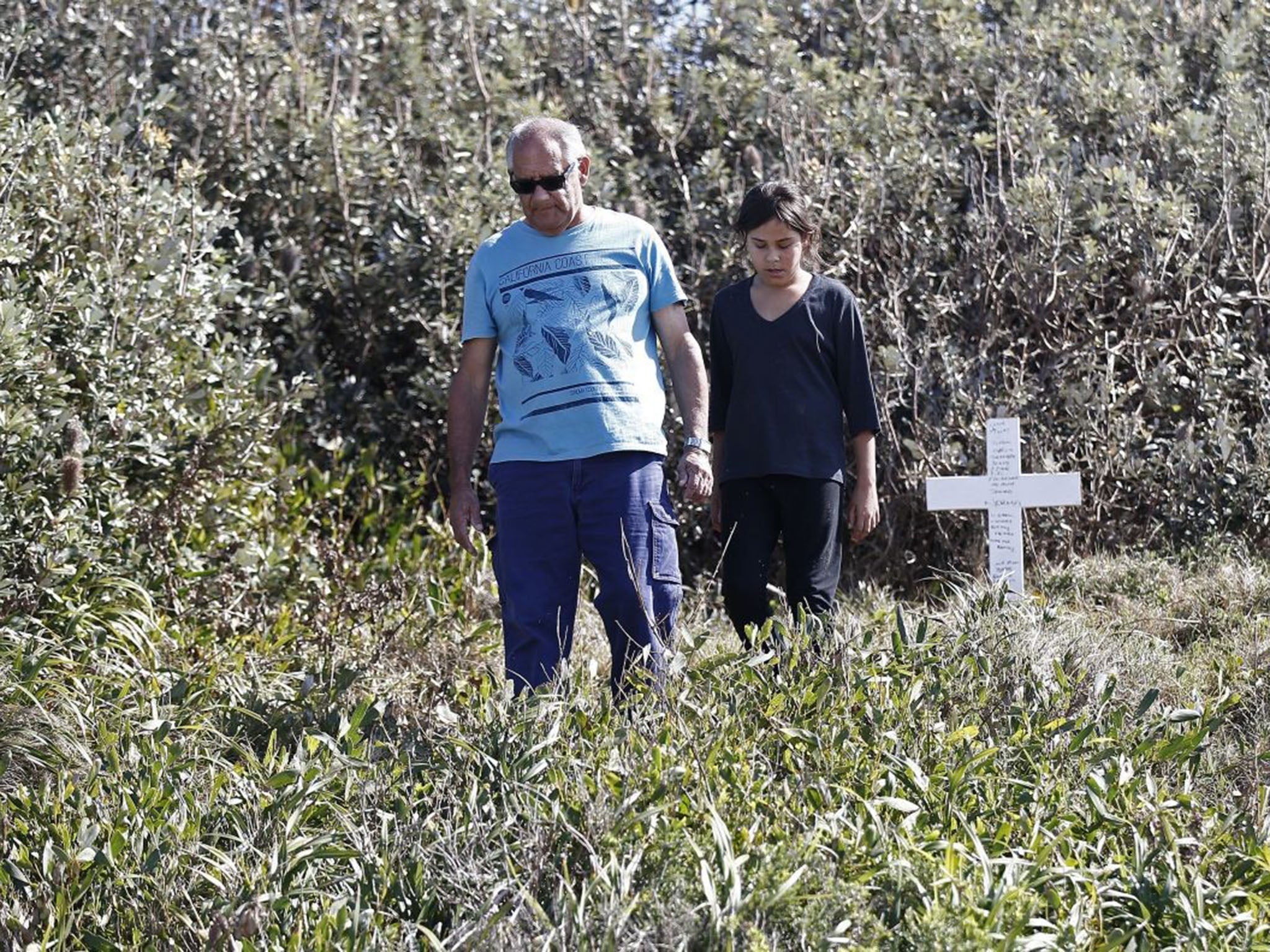
With pressure mounting, prosecutors agreed to review the case. Finally, in June, the head prosecutor delivered the news the Daleys had waited five years for: He would prosecute Attwater and Maris.
Attwater faces a charge of manslaughter, and Maris accessory after the fact. Both also face charges of aggravated sexual assault. They have pleaded not guilty and their lawyers have declined to comment.
A few weeks after the prosecutor's announcement, Australia's public broadcaster released footage of Aboriginal teens being tear-gassed, stripped naked, shackled and thrown around by guards at a youth detention center in the country's Northern Territory, where 97 per cent of juvenile inmates are Indigenous. The video triggered a national uproar. The prime minister ordered a Royal Commission — Australia's highest form of inquiry — to investigate the scandal, including whether racism played a role.
In a tearful speech to the University of New South Wales, prominent Indigenous journalist Stan Grant implored Australians to reckon with their nation's painful past. "More than ever," he said, "we need this mirror into our soul."
Thelma arrived at the courthouse for Maris and Attwater's bail hearing on 2 August clutching a trio of red, yellow and black balloons, the colors of the Aboriginal flag. Together, they read: "Justice for Norma."
The family watched, seething in silence, as the judge granted both Attwater and Maris bail and ordered a ban on publishing the men's home addresses, for their protection.
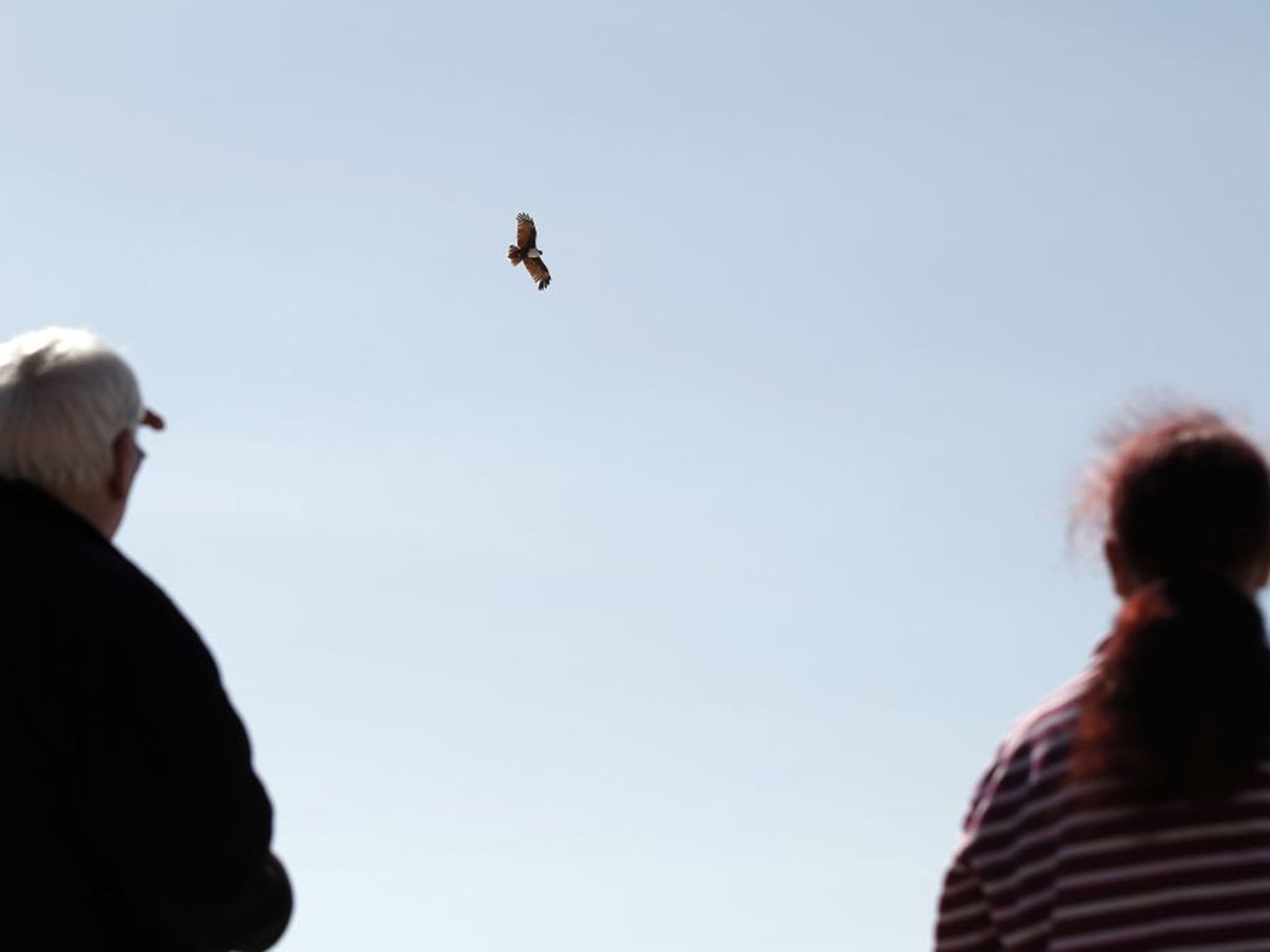
It was more than the family could bear. As Attwater left the courthouse, their rage erupted. They surrounded him, hurled insults. Lynette's sister, Tina, grabbed him.
"What did you do to my sister?" she shouted into his stunned face. "WHY?"
Overwhelmed, she collapsed to the pavement. Paramedics rushed her to the hospital.
Thelma wailed in grief. Her whole body felt tight. Gordon drove her to the hospital, too, fearing she was going into cardiac arrest. Doctors told the women they had suffered anxiety attacks.
"We just wait for the justice to prevail," he says. "And then she can rest in peace."
As they head off down the beach, the eagle glides over them once more. Then it turns and disappears into the dunes.
AP

Join our commenting forum
Join thought-provoking conversations, follow other Independent readers and see their replies
Comments